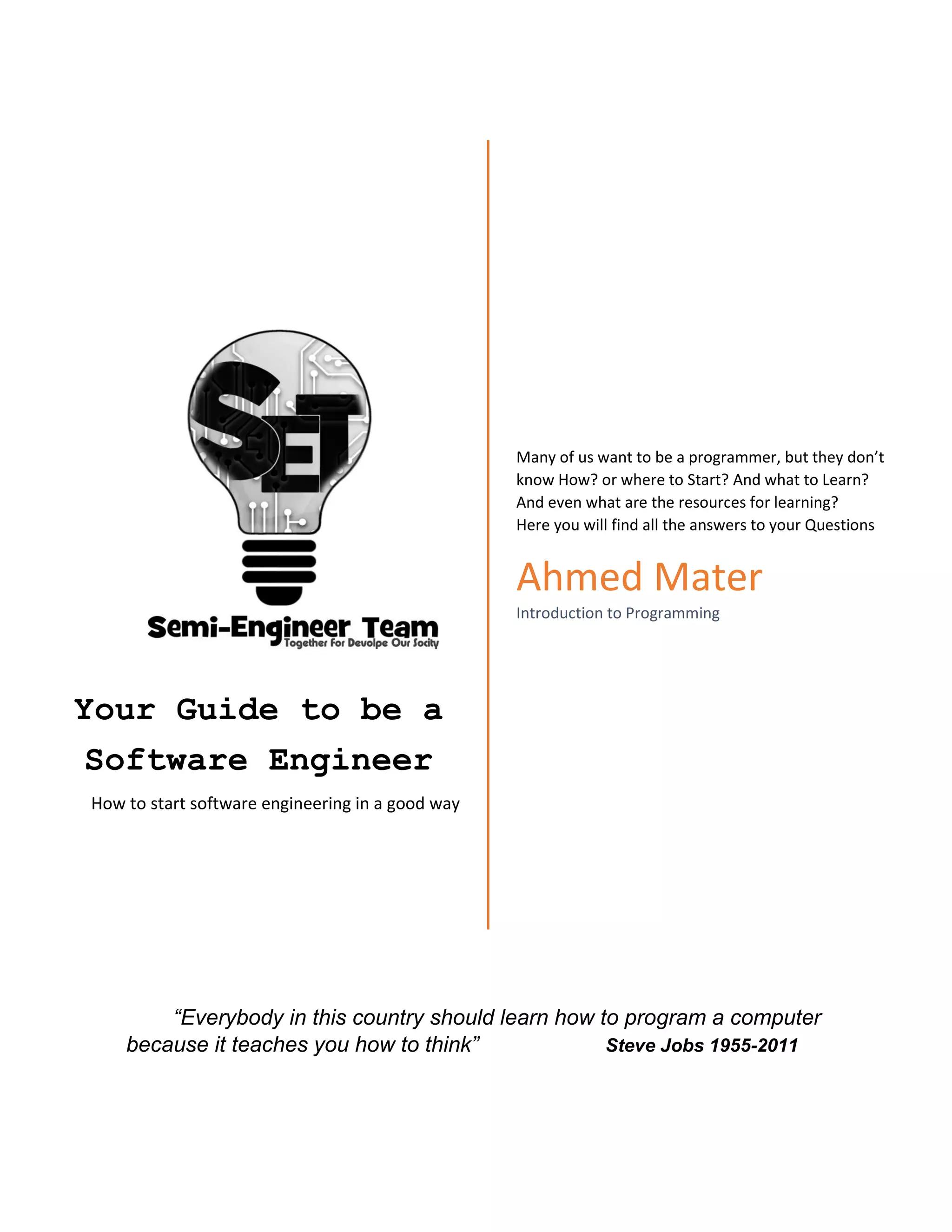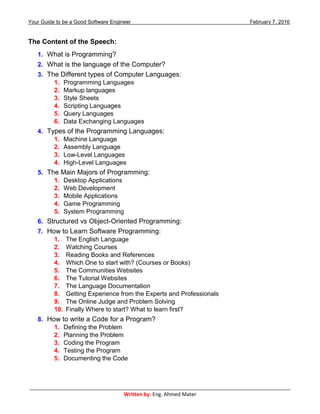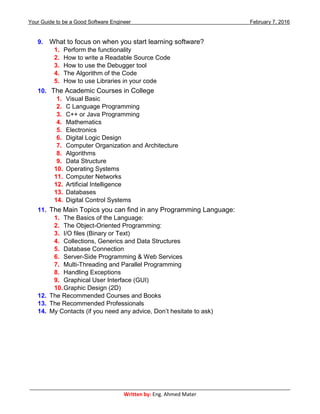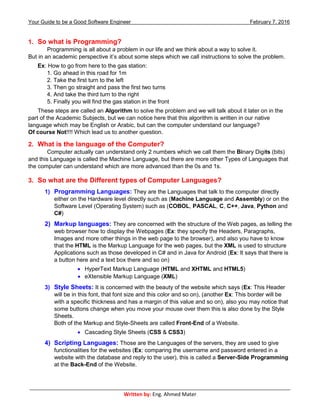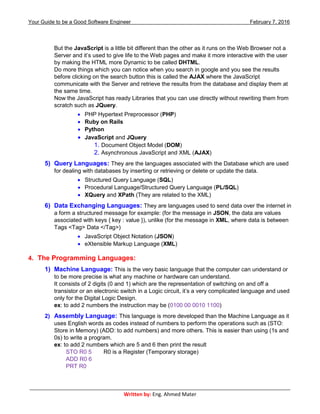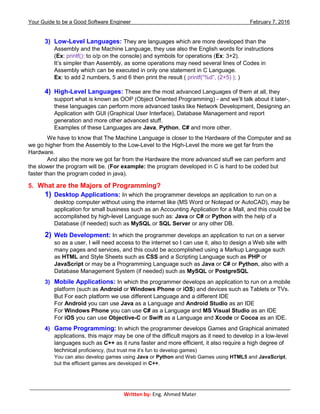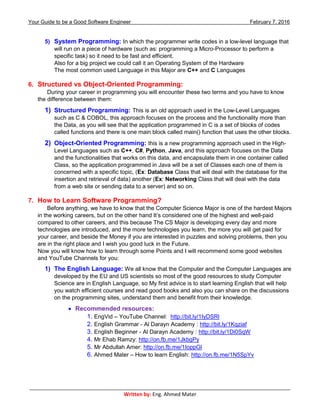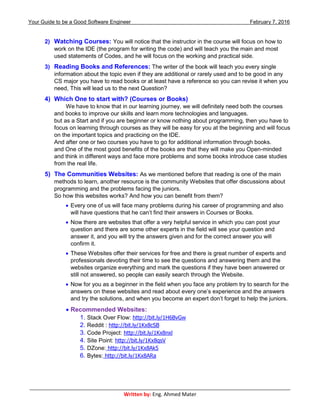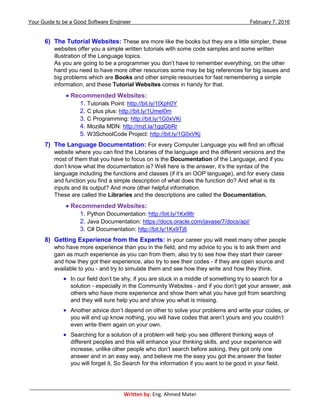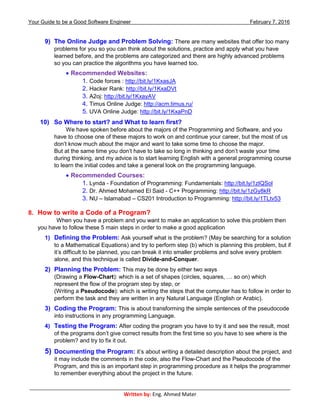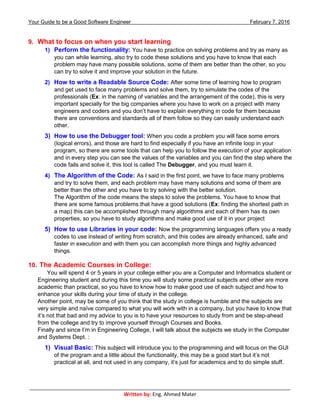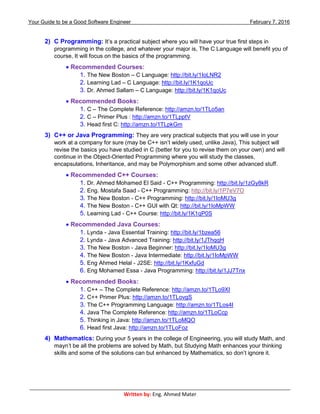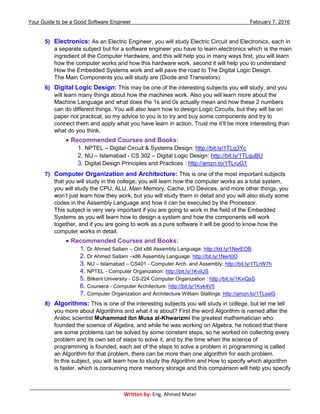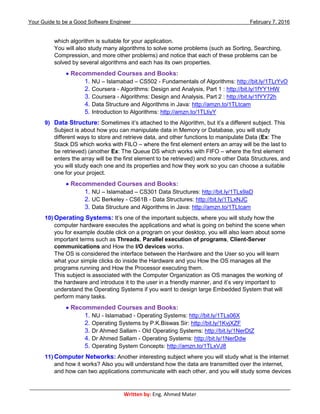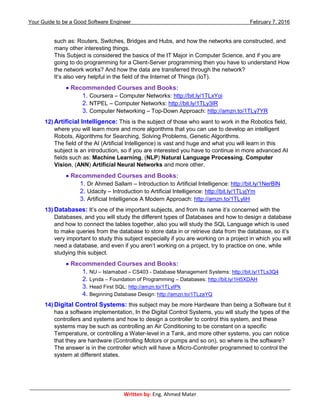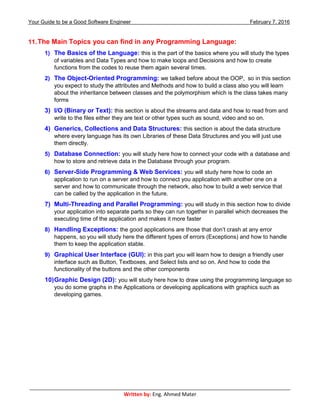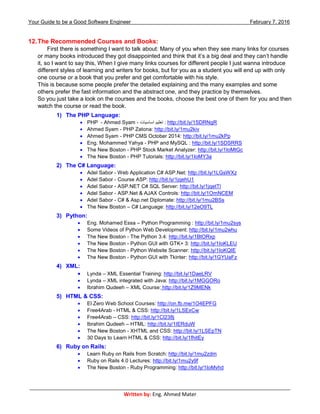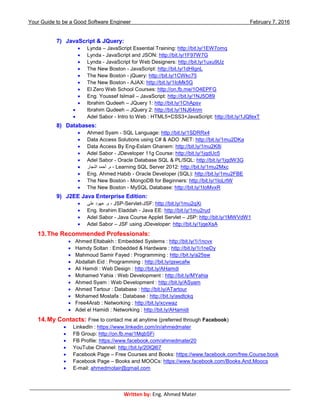This document provides guidance on how to become a good software engineer. It discusses what programming is, different types of computer languages, popular programming majors, and how to learn software programming. The document recommends starting with online courses to learn programming basics and the integrated development environment. It also advises supplementing courses with books for a more comprehensive understanding and to develop an open mind. Community websites are recommended for discussions and problem solving help. The overall guidance is that both courses and books are important for learning, but courses are best to start as a beginner.
